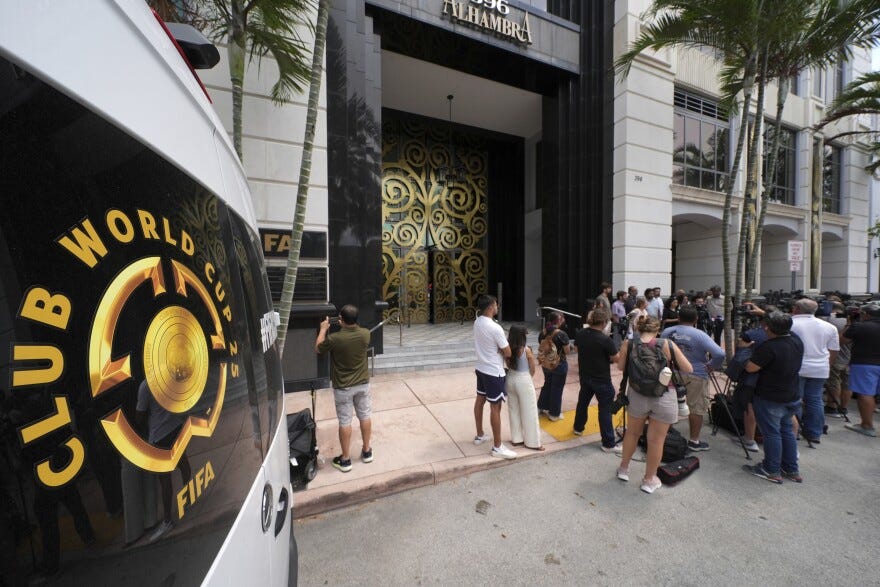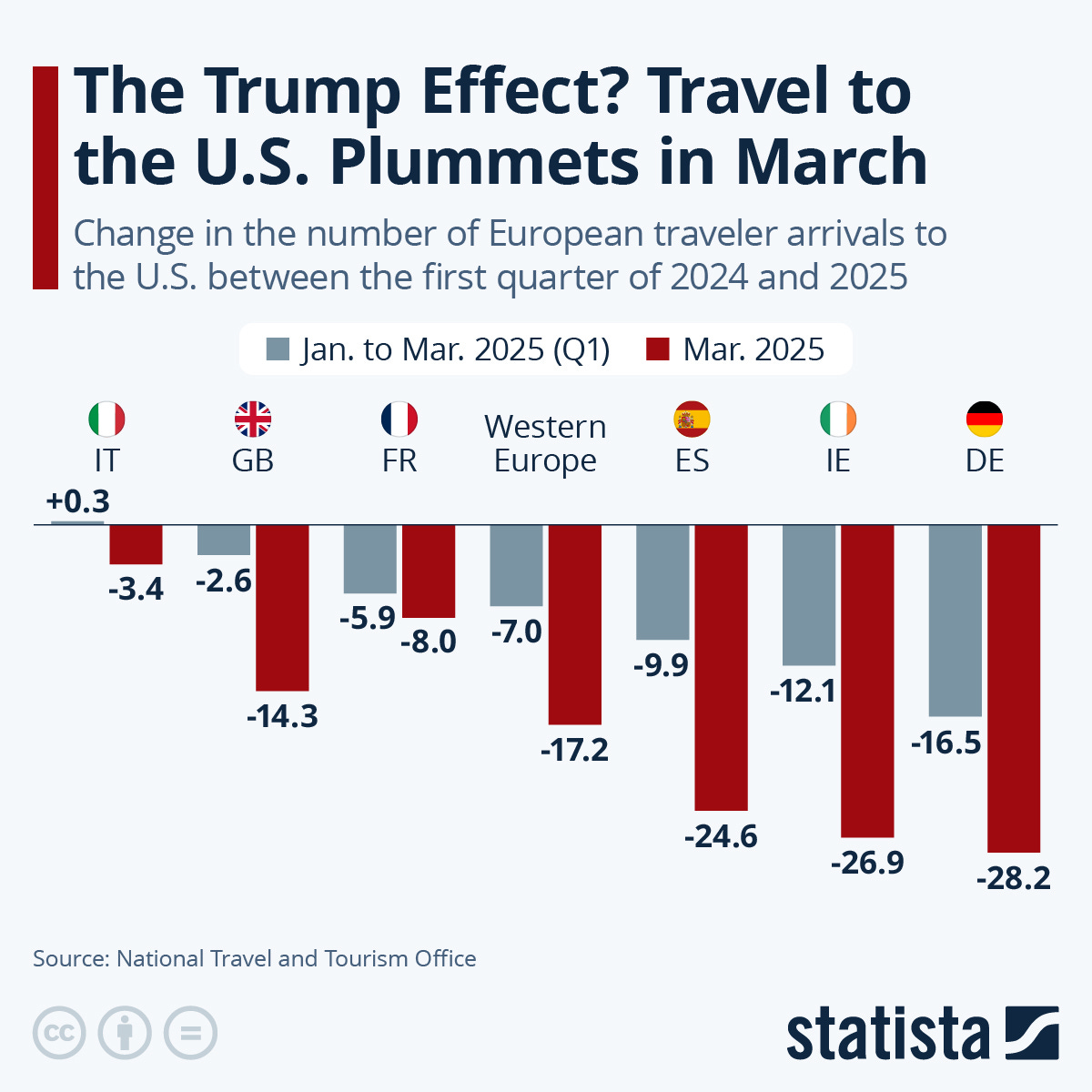ICE Raids Could Cost The FIFA World Cup and the U.S. Billions
American World Cup host cities face international tourism exodus.
Sports venues have served as sacred gathering places since time immemorial. From the ancient amphitheaters of Rome to the bustling stadiums of today, these spaces have transcended mere entertainment to become vital cultural centers where people from all walks of life converge. Rich and poor, young and old, citizens from every social stratum have found common ground in the shared passion of sport. This democratic nature of sporting events has always made them powerful forces for community cohesion, social unity, and urban vitality.
The emphasis on sports venues as safe spaces has historically benefited entire communities and cities. When fans feel secure attending games, local economies flourish through increased foot traffic, restaurant patronage, and hotel bookings. More importantly, these venues foster the kind of cross-cultural interactions that strengthen the social fabric of diverse metropolitan areas. They become neutral ground where differences fade in favor of collective celebration and shared identity.
This tradition of sanctuary now faces a modern challenge. Just weeks ago, pressure from immigrant advocacy groups successfully compelled the Los Angeles Dodgers organization to take a stand against Immigration and Customs Enforcement (ICE) operations targeting Latino fans. The advocacy effort recognized what community organizers have long understood: fear of immigration enforcement doesn't just affect individuals, it undermines the communal spirit that makes sporting events culturally significant. However, the Dodgers' eventual capitulation came only after sustained, multi-pronged pressure that exposed the organization's initial reluctance to take any position.
For weeks leading up to their eventual $1 million commitment, the Dodgers remained conspicuously silent as ICE raids roiled Los Angeles. As demonstrators poured into the streets protesting President Donald Trump's immigration policy and local officials clashed with the federal government, the L.A. Dodgers, which enjoys broad support from the city's Latino community, remained silent. Community advocates employed increasingly creative and confrontational tactics to force the organization's hand.
The pressure campaign included more than 50 Los Angeles leaders who wrote an open letter asking the team to denounce ICE raids. Latino pop singer Nezza defied team management by performing "The Star-Spangled Banner" in Spanish before a home game, despite being told by a team employee not to. Protesters gathered outside stadium gates during games, with fans asking pointed questions: "Why should we keep supporting them if they don't support us?" The emotional toll was evident as fans described feeling abandoned by an organization they loved.
The breaking point came when federal agents appeared at Dodger Stadium itself, seeking access to parking lots as a staging area for raids. "The largest economic engine in this area is silent! Wake up! Do better! We know you can!" Raul Claros of California Rising said Thursday at a news conference, pointing to Dodger Stadium behind him. Only after this direct confrontation, and the bad publicity of federal agents using their property, did the Dodgers finally act, announcing their $1 million commitment the very next day.
The Dodgers' decision wasn't made in isolation. It reflected a growing awareness that sports organizations have both the power and responsibility to protect the diverse communities that support them. When fans worry about potential raids, attendance drops, atmosphere suffers, and the economic benefits that sports bring to cities diminish accordingly.
Now, this same strategy is spreading with remarkable directness and transparency. Miami Latino community advocates are taking a direct page from their Los Angeles counterparts, who successfully pressured the Dodgers, and they aren't shy about saying so. At a press conference held today outside the regional headquarters of FIFA, immigrant rights advocates invoked the Dodgers organization as a symbol of doing the right thing, preventing ICE from staging arrests at its events.
The urgency of their concerns was underscored by a recent incident that highlighted how immigration enforcement is already affecting soccer-related events in Miami. Just days before a Club World Cup event, the Miami Herald reported that federal immigration enforcement disrupted a World Cup celebration on Biscayne Bay that Miami-Dade County Mayor Daniella Levine-Cava was attending. What began as a Coast Guard inspection of the barge-hosted event quickly escalated when a CBP agent joined the operation, demanding that boat staff and catering crew provide proof of legal status. Faced with this enforcement action, event sponsor Telemundo cancelled the festivities entirely, according to activists.
"If a boat carrying the Mayor of one of the biggest counties in the United States could be raided, imagine what could happen to the everyday people who just want to enjoy a game," said the AFSC's Mendez-Zamora. "If FIFA does not act quickly to protect fans, it risks international fans being kidnapped by people in masks and being lost in a system that doesn't work."
These Miami community representatives seek the exact same remedy, and the fallout for the city of Miami and FIFA could be global if they don't comply. Miami is a huge tourist destination, specifically from Latin American countries. If international visitors don't feel safe or even catch rumors to that effect, don't expect a big showing of international fans or the big dollars they bring. The economic implications extend far beyond ticket sales to encompass Miami's entire tourism ecosystem, hotels, restaurants, cultural attractions, and the international reputation that makes the city a global destination.
FIFA and soccer represent the world's largest sporting organization in terms of global reach and impact. The FIFA World Cup is the most watched sporting event globally, with 5 billion people engaging with the 2022 edition, making it perhaps the only sporting organization with a Latino fanbase that rivals or exceeds that of the Dodgers. The 2022 World Cup final alone reached almost 1.5 billion viewers, demonstrating soccer's unparalleled global appeal and deep cultural significance within Latino communities. This makes World Cup events particularly important gathering spaces for these populations. The sport's international character and its role as a unifying force across national boundaries make it an even more potent symbol of inclusive community building.
The stakes couldn't be higher given the current climate of declining international tourism to the United States. Tourism research firm Tourism Economics has slashed its outlook and now projects a 5.1% decline in international visits to the U.S., with spending by foreign tourists expected to tumble 11%, representing a loss of $18 billion in 2025 alone. The decline is expected to continue throughout the remainder of the year, with Tourism Economics estimating a 9.4% decline in international visitor arrivals for 2025, led by a 20.2% decline in visitation from Canada. Some experts warn that the broader impact could be even more severe, with one professor estimating a potential "60 to 120 billion USD" impact on the American tourism sector.
Against this backdrop of declining international tourism, the United States is scheduled to host a significant portion of the 2026 FIFA World Cup. Eleven cities across the United States will host FIFA World Cup matches in 2026, alongside three cities in Mexico and two in Canada. The tournament represents a massive economic opportunity, but one that could be severely undermined if international visitors, particularly from Latin America, feel unwelcome or unsafe.
With cities like Miami committing upwards of $46 million to ensure successful World Cup events, the financial stakes are enormous. Local politicians understand that frightened communities don't attend games, don't spend money, and don't create the vibrant atmosphere that makes major sporting events successful. When a significant portion of your fan base fears attending due to potential immigration enforcement, the entire economic and cultural investment becomes threatened.
If FIFA had maintained pre-2025 international tourism levels, the revenue projections for the U.S. portion of the 2026 World Cup would have been substantially higher. However, with billions of dollars in lost tourism revenue already being projected due to current policies and rhetoric, the economic windfall that host cities expected from international visitors may not materialize as anticipated.
The question now facing FIFA is whether it will follow the Dodgers' eventual lead in protecting the diverse, international communities that make soccer the world's most beloved sport. With the eyes of the world watching and billions in economic impact hanging in the balance, the pressure on FIFA to take a stand may prove as irresistible as it ultimately was for the Dodgers.









"The tournament represents a massive economic opportunity, but one that could be severely undermined if international visitors, particularly from Latin America, feel unwelcome or unsafe."
Nuff said! I know of people in Mexico who said they won´t go to soccer games in the USA because they are afraid of being bullied or inspected.
It’s not just fans.
Senegal’s women's basketball team recently travelled to the US to attend a training camp in Texas. A number of the players & staff were refused visas.
So I wouldn’t assume that the teams traveling to the US wouldn’t have similar issues.